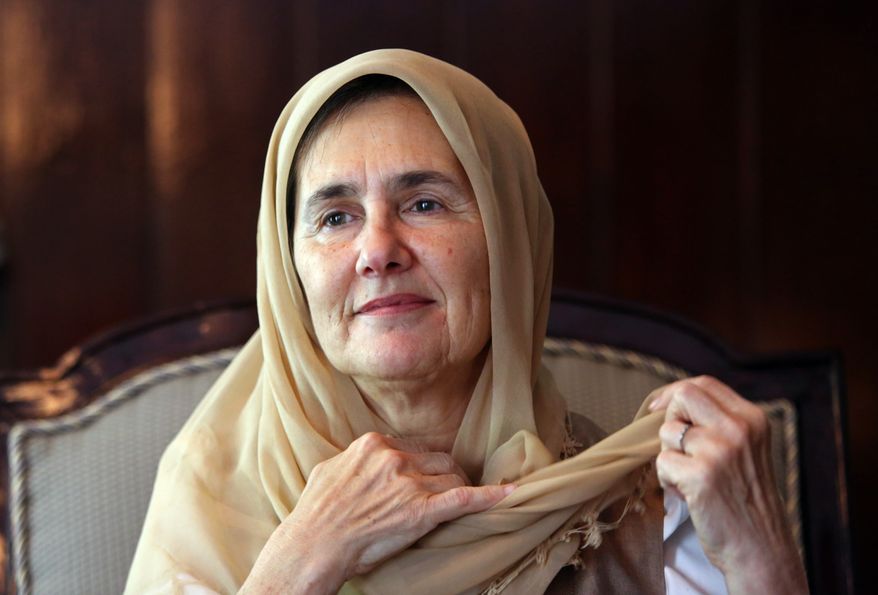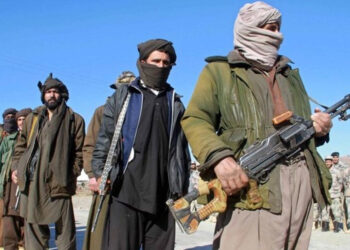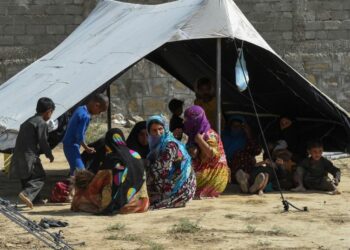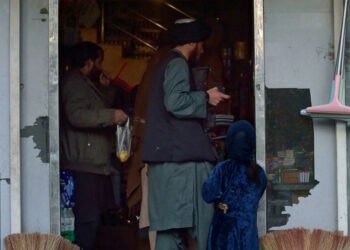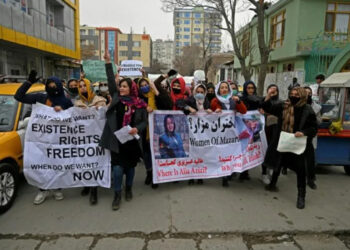The intensity with which the people of Afghanistan are embracing change incites unfathomable curiosity. They are yet again progressing towards a social, political and cultural transformation. An important element in this transformation is the empowerment of women. A new generation of women’s rights activists is making waves, and the public is increasingly becoming eager to support them.
Against this backdrop, which can safely be considered a landmark change, major beneficiaries of “gender projects” in recent years are the tradespeople of “women empowerment.” They are the dominant medium between ordinary women and the benevolent support of the international actors that has barely made any difference.
Since the overthrow of the Taliban, a new class of political entrepreneurs, among them many women, was able to take advantage of the new order and turn “women empowerment” into a highly profitable business.
Strictly speaking, ordinary women have still not found a voice in the public sphere. The parliament has become a showcase venue for tailor-made garments, and government positions and NGOs have grown into a primary source of revenue in the business of women empowerment.
While women’s rights in Afghanistan have been subject to varying and at times conflicting interpretations, the hundreds of millions of dollars poured into misconceived projects in the post-Taliban era for alleviating women’s miseries are spent but to no avail. Bitterly, the word “woman” still stands for a life of indictment and self-sacrifice and “woman equals zar and zameen” (woman equals money and land) is a well-established cultural conviction in the country.
The government of Afghanistan, evermore, celebrates the rise in school enrollment of girls and fall in maternal mortality rates. The international community is, too, the cheerleader of such ephemeral achievements. As though, people’s attention from the shockingly increasing violence against women will be diverted.
Indeed, there are women, among them the First Lady of Afghanistan Rula Ghani aka Bibi Gul, who seem to have cautiously shunned such convictions. She often appears next to her husband, President Mohammad Ashraf Ghani.
Given that she was brought up in a completely different, and relatively liberal, cultural setting, rejecting outdated norms may not be as difficult for her as it is for the ordinary women. Besides, not detaching from the present patterns will lead many to wonder if she deserves to be a prominent face of the “empowerment” movement. Although the impact of her public appearances on women empowerment in Afghanistan is not direct, it is, nevertheless, important.
However, reflecting on the nation’s socio-political history, the tendency to refuse the demeaning norms and indulge in women empowerment is not limited to the First Ladies. A great many people have engaged, more seriously, with the subject in more complex ways. Contrarily, the First Ladies seem to have played a critical role in diminishing vitality of what was regarded an exceptionally great beginning.
Recoiling Conventionalism
The pivotal moment in the history of women’s liberation in Afghanistan, by all accounts, was King Amanullah Khan’s legendary move early in the 20th century to not only bring his wife Queen Soraya Tarzi from seclusion to the public but also allow her photos in a fashionable sleeveless garment to be freely circulated. Though its effect was not immediate because of social and cultural barriers, it was the most important and most influential act in the realm of women’s emancipation and empowerment.
King Mohammed Zahir Shah, whose personal reputation as a progressive king had a steady ascent during his reign, periodically allowed his wife Queen Humaira Begum out in public. Her public appearances were, by and large, symbolic as she generally accompanied her husband during international tours and reception of foreign visitors.
Historical records show that the first President of the Republic of Afghanistan Sardar Mohammad Dauod Khan, also went ahead, watchfully, with progressive policies on the question of the emancipation of women.
During the fortieth celebration of the Independence Day in 1959, his cabinet ministers were escorted by their wives without donning veil. But he too disappointed the hopes of a more liberal and inclusive political system for women in the face of his obsession with other domestic policies, among other things, the Pashtunistan dilemma.
Mahbouba Karmal, wife of Babrak Karmal, was a career teacher and Afghanistan’s First Lady between years 1979 to 1986. During her tenure as the First Lady, she founded the Watan Orphanage that operated in several provinces of Afghanistan and provided care for homeless children. Not surprisingly, however, most of her activities were in line with the ideologies of her husband and the Marxist regime that he had established.
Fatana Najib, the wife of the last Marxist president of Afghanistan Najibullah Ahmadzai, too was largely invisible from the public eye until the Taliban murdered her husband in 1996. Her occasional public appearances, ever since, are mainly limited to retelling the story of her slain husband.
Likewise, President Burhanuddin Rabbani’s and President Hamid Karzai’s wives have long since become part of the Afghan collective memory as little more than names. Apparently, between 1996 and 2014 women in Afghanistan had no guardian, until Rula Ghani’s “Rip Entry” in Afghanistan’s political landscape – quietly and without negative outcomes, despite controversies over her religion and ethnic identity.
The Making of a Bad Ending
This pattern of recognizably shrinking autarky of women has fostered the emergence of neo-conventionalism in Afghanistan.
While years of blood, sweat, and tears have given some women a great deal of power over their lives, Rula Ghani’s artless remarks in an exclusive TV interview was rather unsettling from many aspects.
Firstly, Rula Ghani appeared to be very conscious of her husband’s reputation while framing her responses. In the words of Jenny Nordberg, author of the book “The Underground Girls of Kabul”, Rula Ghani adheres to the “fundamentals of Afghanistan’s honor culture” where a woman’s chastity “is linked to the reputation of her family.”
Secondly, when answering a question on national identity, the First Lady identified herself as a Pashtun. The irony is that the unwritten political manifesto of Afghanistan in general and Pashtun’s in particular mandates inequality of sexes around inheritance and identity. Yet she mindfully honors it. If she wanted to be subversive to these strict social rules and symbolically, even if not true, defend women’s rights she should have identified herself with a non-Pashtun ethnic group.
Thirdly, when trying to make her answers sound politically right, Rula Ghani not only lied to people’s face about her faith but did so in a way that could leave a deep scar on the dignity of followers of other religions like Hinduism and Judaism in Afghanistan. Such expressions, from someone who claims to be the defender of minorities’ rights, make no fair amount of sense. It can be safely asserted that she only did so for gaining political legitimacy for her husband, again “preserving” her family’s reputation.
To conclude, it seems that neither Rula Ghani nor the international community hovering around her notices the central controversy of Afghan women. Any individual, with a properly calibrated understanding of Afghanistan’s context and the condition of its women, would declare that Rula Ghani is not even qualified for becoming the face of the women empowerment movement in contemporary Afghanistan.
Disclaimer: The views and opinions expressed here are those of the author and do not necessarily reflect the editorial position of The Globe Post.

